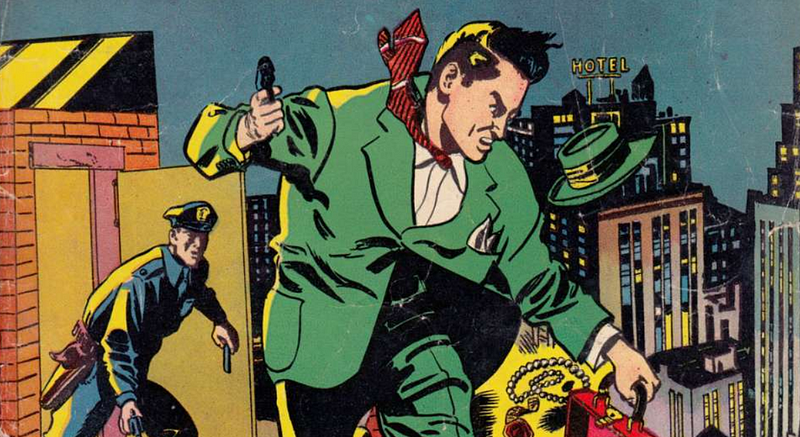If you are the creator of a piece of work, you hold all the rights. Those rights only leave your control if you’ve taken official and formal steps to completely surrender those rights. This is not just for work submitted to big publishers, either, but is also important when it comes to small magazines, fan zines, etc., where normal contracts might not exist.
If you don’t understand what something in a contract means, don’t give it away. You are the guardian of your intellectual property, so be a responsible guardian. It can feel odd to stand up for yourself, but it’s vital that you do!
Contracts are not always all or nothing, usually you’ll negotiate, and negotiation is expected. If you’re unsure about some aspect of a contract, ask the person who’s trying to buy your license, “can you clarify that for me?” You’ll learn loads about the publisher from how they answer your questions. And, then you can take that answer to your agent, to a knowledgeable friend, to an IP lawyer, or the broader arts community. Basically, never sign a contract until you understand it, and preferably have solicited 3rd party feedback on it.
My main advice is: if you enter a creative field, get an agent (especially if you write long form fiction). Make sure your agent understands contract rights really, really well, and is able to tutor you in understanding what rights are on the table when licensing your book.
What sort of contract red flags should you look out for?

- Whatever you do: NEVER sign a contract that says it lasts forever. Terms of perpetuity aren’t likely to be enforceable anyway, and it casts the publisher in an instantly suspicious light.
- “World rights.” Typically, you might not have much choice as a new author, but if you can, you want to negotiate your foreign rights as much as possible. You only want to give them rights to the area in which the publisher is operating. Basically, you want to retain as many foreign rights as possible. Make sure your agent is fighting for this.
- People who ask you to sell things rather than license (rent) things. Never accept any offers to buy something from you — don’t ever sell your work, only ever license it.
- No contract at all: this is a massive red flag. No matter what the publisher says about this, don’t take them up on it.
- Agents: Agents take their cut from the sale of the book, they will never ask you to pay for the privilege of their company.
- If a publisher will not negotiate at all, that’s probably a red flag. It’s petty, it’s scummy, and unless they’re offering something totally amazing, don’t go for it. Pick some small thing and ask them to change it in order to see how they handle this. Again, it’s normal to haggle on contracts like this.
- If a market isn’t sharing their contract publicly, that’s a red flag. You should be able to find details of their contract through their website.
- Beware of contracts that don’t include a “Kill clause.” A kill clause is used when a publisher contracts a story and then changes their mind on it. This clause states that if the publisher decides not to publish, or withdraws, or just sits on the work, the writer still gets paid. The kill clause makes sure you get something for the inconvenience.
- Exclusive contracts: ones that say you can’t ever go to another market, or which try to restrict what you can publish while you have your work with that publisher. You don’t want to accept anything that restricts your ability to make money.
- “Morality clauses”: regarding how an author is publicly viewed, and allows the publisher to withdraw from the contract if the publisher doesn’t think the author will be able to fulfill the needs of the publisher. These are iffy, and really need to be considered carefully. Make sure you understand if there are any limitations on your behavior as a client of the publisher stated in the contract.
- Joint/Single accounting: Single accounting means that the publisher is only looking at each individual published work when paying the author. Joint accounting means that the publisher only pays out based on the sales of all or several of the books in the series. You want to go for single accounting whenever possible. Book advances are getting smaller and royalties can take years to get to your pocket. Joint accounting would slow down your potential payments even more.
A note on the term “term”
The word term can mean two different things:
- “Terms and conditions” (elements of the contract itself)
- “Term of contract length” (how long the contract lasts)
Most novels and anthologies will have terms of contract length dealing with reversion of rights to you, often based on sale numbers. For short form fiction it’s more about commonplace norms such as an exclusivity period to the publisher. Most magazines ask for an exclusive period where they have sole rights to publish your work, but after that time period elapses you can do whatever you want with it.
Termination: how do I bring the term of the contract to an end?

It could be because the terms have been fulfilled, or because the parties don’t want to continue for another reason (i.e., the publisher folded, or isn’t handling the work well). Whatever the reason, you should make sure that you understand and agree to the termination clause in the contract.
You should also make sure that you retain term limits in the contract for specific licensing rights. Specific rights might be handed to the publisher for a set amount of time, but if at all possible they should revert back to you after a set point (likely with two components, a timed component and a sales/financial goal component).
Keep an eye on the sub rights and misc. rights! You absolutely want to have terms on things like merchandising rights, audiobook rights, film rights, reprints, etc.
The world of publishing can be a confusing place, that’s why it’s important to have a community at your back. Round Table Writers is just such a community. Comprised of experienced authors and new writers alike, our goal is to create a safe place for artists to support artists.

